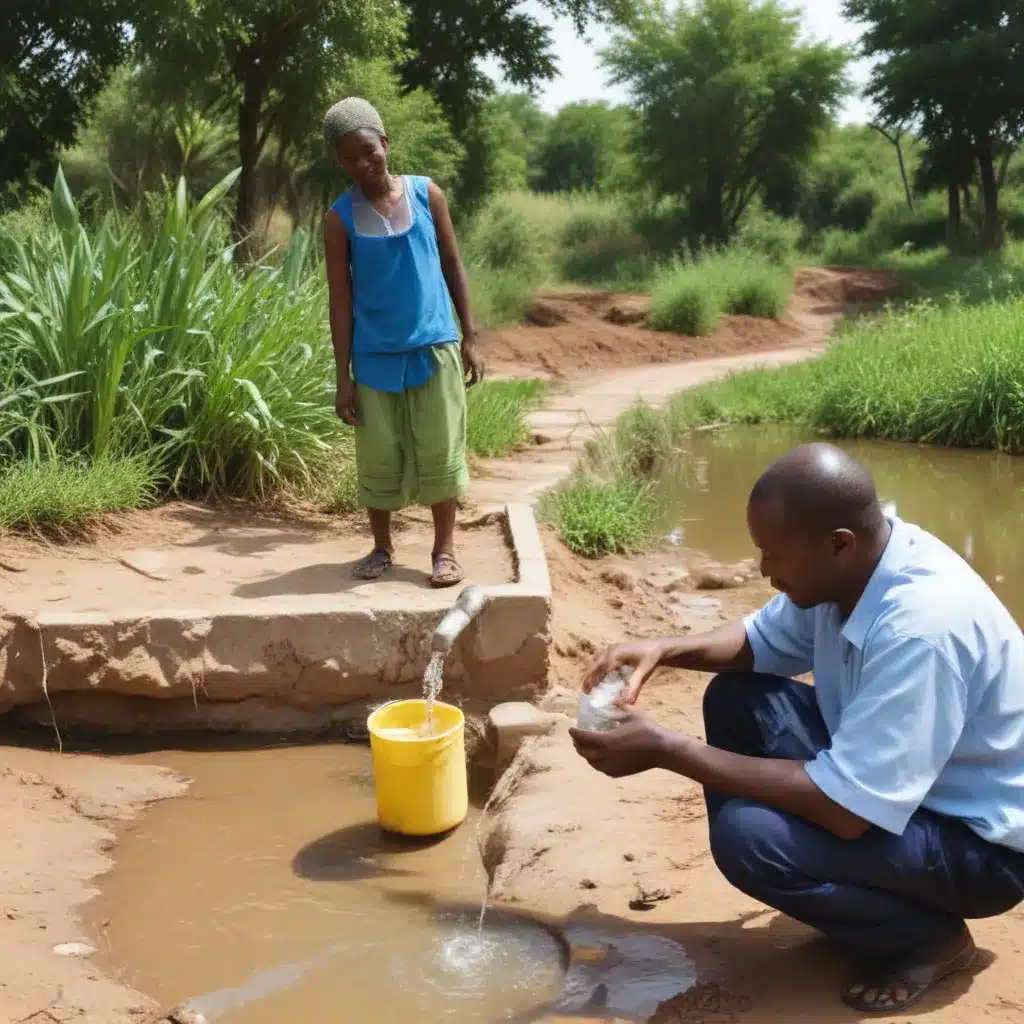
Empowering Communities for Sustainable Water Futures
In an era of rapidly changing climate patterns, reliable access to clean and safe water has become a critical challenge for communities worldwide. The Maldives, a nation of tiny islands in the Indian Ocean, exemplifies the urgent need for innovative, community-centered approaches to water resource management. Faced with dwindling freshwater supplies, rising salinity levels, and the constant threat of extreme weather events, these island communities must adapt and build resilience to secure their water futures.
At the heart of this challenge lies the need for a paradigm shift – one that empowers local stakeholders to take an active role in managing their water resources. Community-based water resource management (CBWRM) offers a promising pathway, leveraging the invaluable insights and participation of the very people who rely on these vital resources. By embracing CBWRM, communities can harness their collective knowledge, resources, and agency to safeguard water availability, quality, and equitable distribution, even in the face of climate change.
Integrating Groundwater, Rainwater, and Wastewater Management
The Maldives project, funded by the Adaptation Fund, provides a compelling example of how CBWRM can be implemented to enhance water resource resilience. The initiative, focused on the islands of Mahibadhoo, Ihavandhoo, and Gadhdhoo, takes a holistic approach to water management, integrating groundwater, rainwater, and wastewater systems.
Groundwater Protection and Recharge
The project begins by addressing the pressing issue of groundwater depletion and salinization. By installing groundwater protection and recharge measures, using surplus rainwater, the initiative aims to safeguard this critical freshwater source. Community engagement will be crucial in ensuring the long-term sustainability of these interventions, as local stakeholders must understand and embrace the importance of responsible groundwater management.
Rainwater Harvesting Enhancements
Recognizing the importance of rainwater harvesting in the Maldives’ water-scarce environment, the project will redesign and interconnect existing rainwater harvesting schemes. This will help ensure more equitable access to water, even during dry spells and climatic extremes. Strengthening the structural integrity of these systems against extreme weather events is also a key priority, underscoring the need for climate-resilient infrastructure.
Wastewater Management Improvements
Enhancing wastewater management is another crucial component of the project. Initiatives to improve septic tank maintenance and redesign wastewater systems will not only improve sanitation but also reduce the risk of groundwater contamination. By integrating these efforts with the groundwater and rainwater initiatives, the project takes a holistic approach to water resource management, addressing the interconnected nature of these critical systems.
Fostering Community Engagement and Capacity Building
The Maldives project recognizes that sustainable water resource management cannot be achieved through infrastructure alone. Equally important is the active engagement and capacity building of community stakeholders, including water suppliers, planners, and users.
Communication, Awareness, and Training
The project will introduce a range of communication, awareness, and training activities to enable public, private, and communal stakeholders to effectively engage with each other and participate in the inclusive development, allocation, and planning of water resource use on their home islands. This empowers communities to take ownership of their water futures and become active partners in the decision-making process.
Knowledge Sharing and Replication
Beyond the project’s immediate target sites, the initiative aims to share its findings and approaches with a broader audience. A campaign will be launched to present the project’s lessons and recommendations to different public entities, political authorities, utility companies, and development partners, as well as other atolls and islands facing similar vulnerabilities. This knowledge-sharing and replication effort is crucial for scaling the impact of community-based water resource management approaches across the Maldives and potentially beyond.
Strengthening Institutional Linkages and Enabling Environments
While community-driven initiatives are at the heart of the Maldives project, the success of these efforts also depends on strong institutional support and enabling environments. The project recognizes the importance of fostering collaborative relationships between local stakeholders and higher-level authorities.
Consultative Mechanisms and Policy Integration
At the national level, the project will establish a consultative mechanism that allows the integration of its experiences into the design and rollout of new water management projects and schemes. This ensures that the lessons learned from the community-based approach are channeled back into policy and decision-making processes, creating a feedback loop that strengthens the overall institutional support for CBWRM.
Facilitating Exchange and Learning
The project also aims to facilitate exchange programs, where stakeholders from the target islands can visit and learn from each other’s experiences. This cross-pollination of ideas and best practices not only strengthens the community’s capacity but also fosters a network of knowledge-sharing and collaboration that can inspire and inform water resource management efforts in other vulnerable island communities.
Conclusion: Toward Resilient and Equitable Water Futures
The Maldives project’s holistic, community-centered approach to water resource management offers a compelling blueprint for enhancing water resource resilience in the face of climate change. By integrating groundwater, rainwater, and wastewater systems while empowering local stakeholders, the initiative demonstrates the transformative potential of CBWRM.
As communities around the world grapple with mounting water challenges, the lessons from the Maldives can serve as a valuable guide. By fostering collaborative partnerships, strengthening institutional linkages, and cultivating a culture of shared responsibility, we can unlock the collective power of communities to build resilient and equitable water futures. The journey toward sustainable water management is a complex one, but by placing the community at the heart of the solution, we can chart a path forward that is both impactful and enduring.
To learn more about the Maldives project and explore other community-based water resource management initiatives, visit the Joint Action for Water website.

